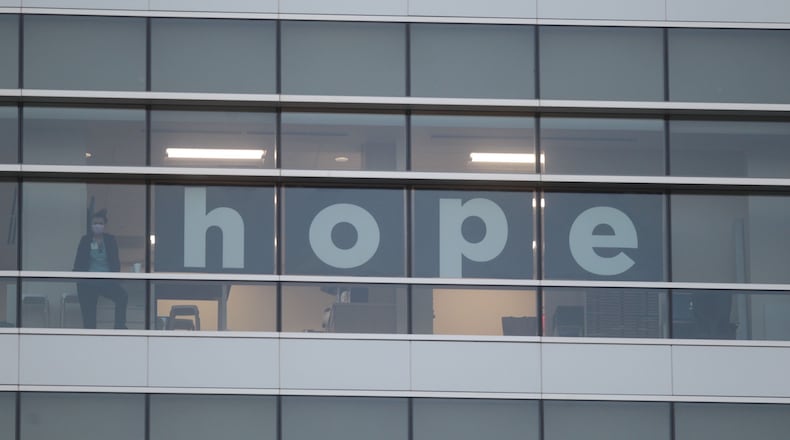“Over the last three years, we have gained heightened awareness of the need to protect the rights of a patient to have access to a loved one or advocate to act on behalf of their best interest while in a hospital or care facility,” said State Rep. Melanie Miller, R-Ashland, who sponsored the bill with State Rep. Beth Lear, R-Galena.
Both Miller and Lear indicated the precautions taken during COVID-19 pandemic to limit its spread inspired the bill, suggesting the precautions went too far.
“The Never Alone Act ensures that everyone has someone who can speak for them, when they do not have a voice,” Miller said.
At the time of admission to a congregate care setting, the Never Alone Act allows the patient to designate an advocate who will act on their behalf. If patients are not allowed access to their advocates, the bill authorizes them or their advocates to petition a court for injunctive relief for a violation or threatened violation of the bill’s provisions.
“The Never Alone Act is a patient and resident-centered bill. Our goal was to protect Ohioans when they are most vulnerable and ensure they have access to a loved one to hold their hand or provide comfort,” said Lear. “The isolation that caused our citizens to suffer and die alone during COVID should never be allowed to happen again.”
Congregate care settings will have to display the Never Alone Act information within their facilities. The government and state agencies will also not be able to suspend the Never Alone Act, the bill says, even if the order is coming from the federal government, which is typically enforced above state law.
The Never Alone Act saw few opponents during committee testimonies, but critics of the bill had sought for hospitals to have more flexibility in making those determinations on visitor policies in order to protect others.
“Health care facilities and the physicians who work in them are stewards of health not just for patients in our care, but the community at large,” said Dr. Jonathan Scharfstein, president of the Academy of Medicine of Cleveland and Northern Ohio, in his submitted testimony.
Visitors to health care settings can pose risks to patient populations and others in the facility, he said.
“We take public health concerns seriously, and as the physicians on the front lines of the COVID-19 pandemic, we saw just how devastating the rapid spread of illness is to the communities that trust us with their health,” Scharfstein said.
The decisions made by health care facilities to limit visitation during the COVID-19 pandemic were not made lightly, he said.
“Rather, they were difficult, critical decisions made in the interest of slowing the spread of the deadly virus and protecting public health,” Scharfstein said. “The ability for health care facilities and physicians to make these decisions during public health emergencies is fundamental to our role as health care providers to all people.”
The signed act will become law after 90 days.
About the Author





